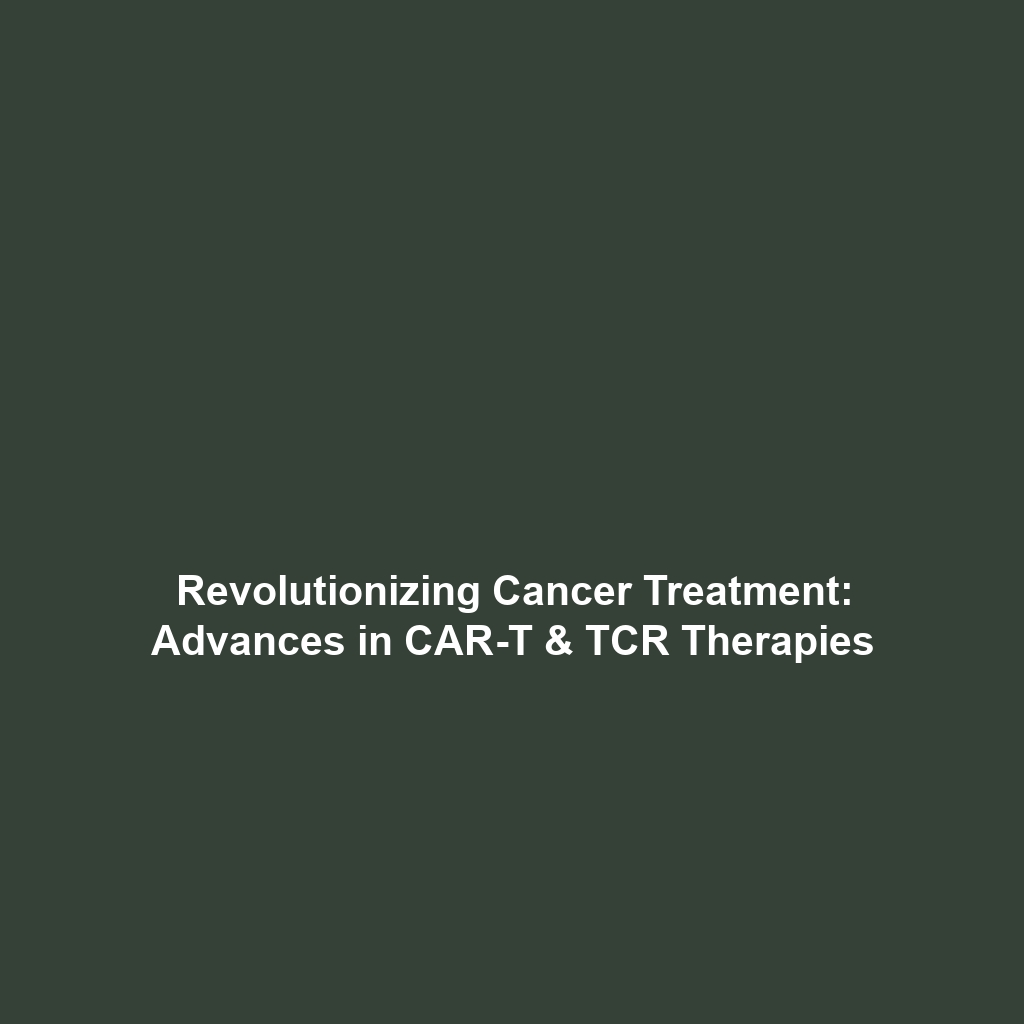Advances in CAR-T and TCR Therapy: Expanding the Reach of Cellular Immunotherapy
Introduction
Advances in CAR-T (Chimeric Antigen Receptor T-cell) and TCR (T-cell Receptor) therapy represent a pivotal shift in the realm of immunotherapy & cancer. These cellular immunotherapies harness the body’s own immune system to selectively target and eliminate cancer cells. In this article, we will explore the significance of CAR-T and TCR therapies within the broader context of immunotherapy, highlighting their effectiveness, applications, and the challenges faced in the field. As oncology continues to evolve, understanding these therapies will be crucial for both healthcare professionals and patients navigating treatment options.
Key Concepts
Understanding CAR-T Therapy
CAR-T therapy involves genetic modification of a patient’s T-cells to express a receptor that can recognize and attack specific cancer cells. This process includes:
- Collection: T-cells are harvested from the patient’s blood.
- Modification: The cells are genetically engineered to express CARs that target cancer antigens.
- Expansion: Modified T-cells are grown in the lab to increase their numbers.
- Infusion: The expanded T-cells are infused back into the patient to combat the cancer.
Understanding TCR Therapy
Similar to CAR-T therapy, TCR therapy enhances T-cell functionality by equipping them to recognize specific proteins (peptides) associated with tumors. This modality includes:
- T-cell Isolation: T-cells are isolated from the patient.
- TCR Engineering: These cells are genetically modified to express specific TCRs aimed at tumor proteins.
- Reinfusion: Enhanced T-cells are reinfused to attack cancerous cells with high specificity.
Applications and Real-World Uses
The applications of CAR-T and TCR therapies in immunotherapy & cancer are rapidly expanding. Key uses include:
- Successful treatment of hematological malignancies such as acute lymphoblastic leukemia (ALL) and diffuse large B-cell lymphoma (DLBCL).
- New clinical trials assessing TCR therapy for solid tumors, showing promising results in targeting melanoma and lung cancer.
- Exploration of combination therapies using CAR-T alongside checkpoint inhibitors to improve patient outcomes.
Current Challenges
Despite their success, challenges persist in the development and application of CAR-T and TCR therapies, including:
- Cost: The high cost of CAR-T therapies can limit patient access.
- Durability: Some patients experience relapse or loss of response over time.
- Side Effects: Severe side effects, such as cytokine release syndrome, can pose significant risks.
- Solid Tumors: Challenges remain in effectively utilizing these therapies against solid tumors due to the tumor microenvironment.
Future Research and Innovations
The future of CAR-T and TCR therapies is bright, with ongoing research focused on:
- Next-gen CARs: Developing “off-the-shelf” CAR-T products that are less personalized and more widely available.
- Novel Targets: Identifying new tumor antigens for TCR therapy to broaden cancer applicability.
- Combination Therapies: Researching synergistic approaches that may enhance effectiveness against various cancers.
Conclusion
Advances in CAR-T and TCR therapy signify a transformative era in immunotherapy & cancer treatment. As these therapies continue to evolve and overcome existing challenges, they hold the potential to revolutionize the way we approach cancer care. For more information on related topics, explore our articles on cancer research innovations and advancements in immunotherapy.
